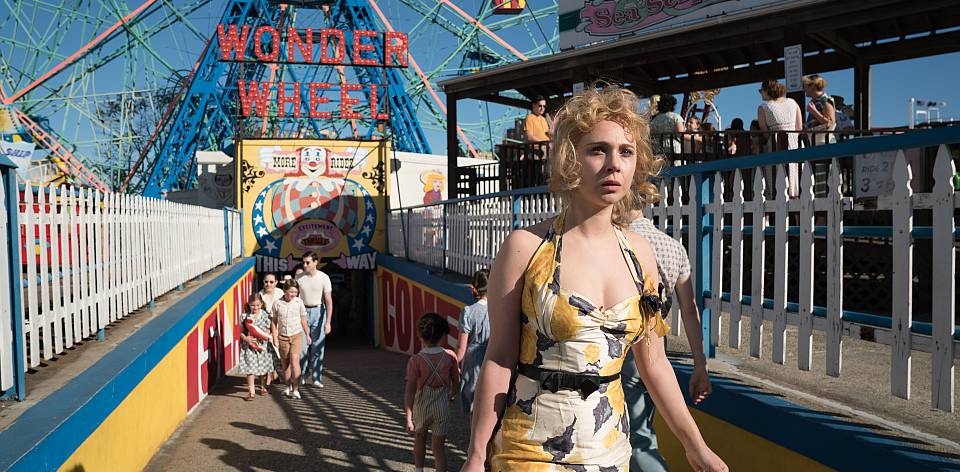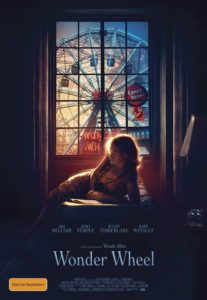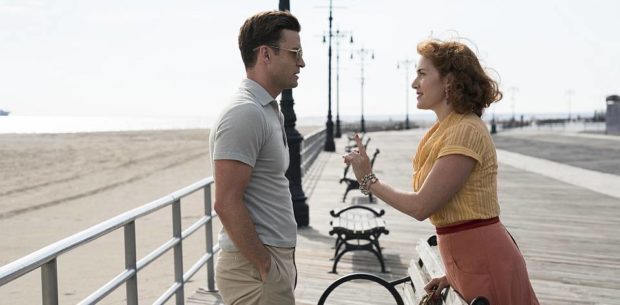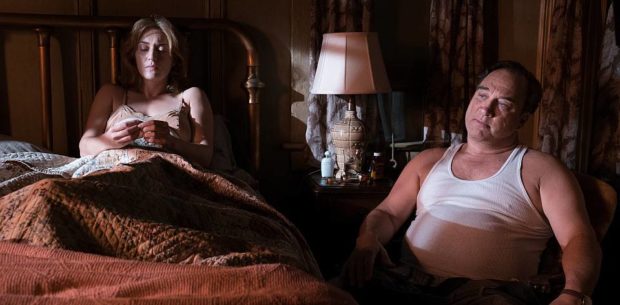In Woody Allen’s classic Annie Hall, his character of Alvy Singer swears that he “was brought up underneath the roller coaster in the Coney Island section of Brooklyn.” Forty years and as many films later, WONDER WHEEL envisages a slice of drama taking place in a similar setting. It’s an odd piece from the get-go, drawing on his own theatrical history to present something more akin to his earlier stage-inspired outings.
Ginny (Kate Winslet), a failed actress and wife of carousel operator Humpty (Jim Belushi), lives in the shadow of the titular ride in the 1950s. Their lives are thrown into chaos when Humpty’s estranged daughter Carolina (Juno Temple) comes to live with them, and Ginny begins an affair with lifeguard Mickey (Justin Timberlake).
It’s hard to separate Woody Allen’s on-screen personas and avatars from his personal life, mostly because Allen opened that door himself decades ago. Allen’s unique voice is such an integral part of his films, whether he is in them or not. So when Ginny accuses Humpty of treating his daughter more like he’s in love with her, it’s hard not to feel that Allen is responding to his own series of accusations.
Yet more than anything, WONDER WHEEL dips into another aspect of Allen’s past, pulling on stylistic forebears Radio Days at some points, and the rigid staging of something like the Ingmar Bergman inspired Interiors at others. It’s an odd mash-up, feeling for all the world like a stage play put to camera. This would be fine if Allen stuck to this motif, but his oft-used convention of a fourth-wall breaking narrator (in this case Timberlake’s Mickey) is simply abandoned without notice.
The bizarre love quadrangle is classic Allen territory, and often lives or dies on the performances. Winslet is wonderful as Ginny, desperately clinging to Mickey in a way that’s as hilarious as it is tragic. Similarly, while Timberlake occasionally gets caught up in rigid delivery that Allen’s dialogue lends itself too, the audience falls into the same love-hate relationship that both Carolina and Ginny have with the character.
In the wake of Hollywood’s righteous purging of sexual predators from its ranks, and more identified every day with the #MeToo campaign, Allen’s brand of drama is a timely target. This is not to say that we can’t continue to enjoy Allen’s films, but it is also important to note that this should not be coupled with a defence of any of the allegations against him. So in the case of WONDER WHEEL, the two are inexplicably linked, in a weird passion play that never quite ties all of its ideas together.
[stextbox id=”grey” bgcolor=”F2F2F2″ mleft=”5″ mright=”5″ image=”null”]2017 | US | DIRECTORS: Woody Allen | WRITERS: Woody Allen | CAST: Kate Winslet, Justin Timberlake, Jim Belushi, Juno Temple | DISTRIBUTOR: Entertainment One (AUS) | RUNNING TIME: 101 minutes | RELEASE DATE: 7 December 2017 (AUS) [/stextbox]







